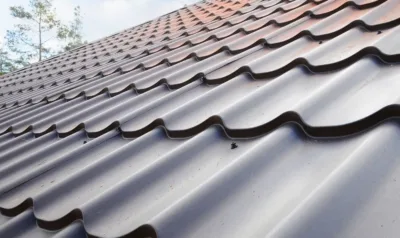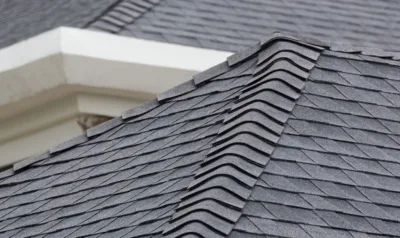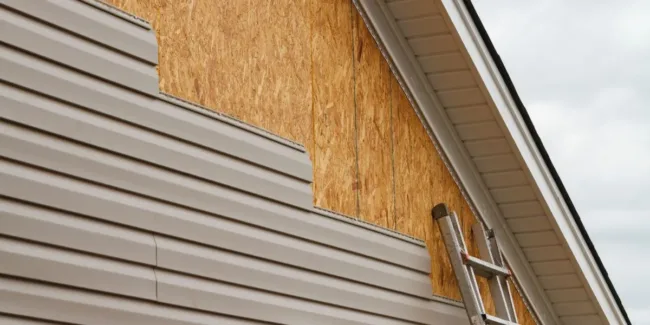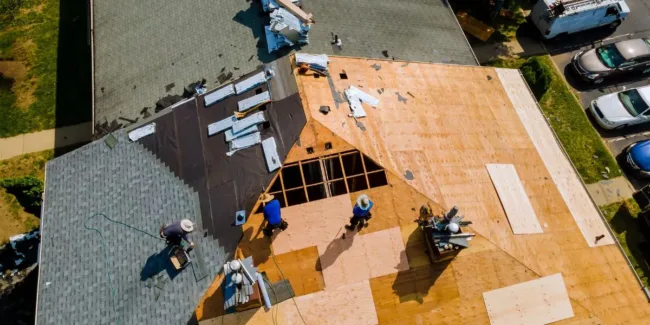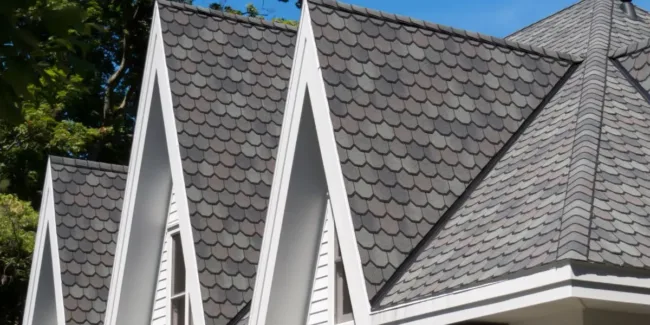Do You Need A Permit To Replace Your Roof In Pennsylvania?
In Pennsylvania, roof replacement permits are governed primarily at the local level rather than through a single statewide rule. Many municipalities only require a permit if the work involves structural modifications or the replacement of key structural components such as roof decking or sheathing. For basic reroofing – where only the existing shingles or surface materials are replaced without altering the structure – some localities waive permit requirements altogether, particularly for single-family detached homes. Knowing which category your project falls into is essential to avoid delays, fines, or issues with insurance and property resale.
Structural vs. Non-Structural Roof Work
What Counts as Structural Work
Structural roof work includes any changes that affect the integrity of the roof’s framework or load-bearing components. Examples include replacing sheathing, trusses, or the roof deck, as well as switching from lightweight shingles to heavier materials such as slate or tile. These changes increase the weight and stress on the structure and almost always require a permit throughout Pennsylvania. Even partial replacements involving 25% or more of the roof’s structural area may trigger a permit requirement depending on the municipality.
Non-Structural Work That May Be Exempt
Non-structural roof replacements are limited to surface-level improvements, such as installing new asphalt shingles over existing ones without modifying the underlying support system. In some municipalities, these projects are exempt from permitting requirements – especially for single-family detached homes. However, exemptions do not apply universally. For attached dwellings, multi-family properties, or commercial buildings, even non-structural work may require permits. Always verify with your local building department to ensure compliance.
Local Municipality Rules in Pennsylvania
Permit Rules Vary Widely by Township and Borough
Each township, borough, or city in Pennsylvania sets its own thresholds for when a roofing permit is necessary. For example, some jurisdictions like Harrisburg require a permit if more than 25% of the roof area is being repaired or replaced. Others may base their requirements solely on whether structural elements are being altered. This variation means homeowners cannot assume that what applies in one area will hold true in another.
Examples of Local Requirements
In Newtown Township, permits are not required for roof replacement on single-family detached homes but are required for attached dwellings like townhouses or duplexes. In contrast, Scranton requires permits for all roof replacement projects, even if there are no structural changes. These examples illustrate how rules can differ significantly even between neighboring municipalities. The only way to be certain is to contact your township or borough’s building or zoning office before starting any work.
Key Questions to Ask Your Local Building Department
When planning a roofing project, ask your local officials the following:
- Does my project require a permit for reroofing?
- Does the 25% roof area rule apply in this jurisdiction?
- Are there special requirements for attached dwellings or historic districts?
- What inspections are required during or after the project?
By getting clear answers to these questions, you reduce the risk of compliance issues.
Standard Permit Application Requirements
Typical Information Needed for a Roofing Permit
If your project does require a permit, the application process is usually straightforward. Most municipalities ask for:
- Contractor information, including license and insurance
- Project details, such as scope and location
- Plans for any structural changes or upgrades
- The types of materials to be used
- Estimated cost of the project
Submitting complete and accurate information ensures your permit is processed quickly and minimizes delays.
Permit Fees Across Pennsylvania
Permit fees for roof replacements typically range from $50 to $150 for single-family homes, with an additional $4.50 state fee added to most applications. Some municipalities charge higher fees for larger projects, structural changes, or commercial properties. Always factor these costs into your budget when planning a roofing job.
What to Do Before Starting a Roofing Project
Verify Local Requirements Early
Before signing a contract or ordering materials, verify your municipality’s specific permit requirements. Most local building or zoning offices have websites or staff who can answer your questions quickly. This step ensures you know what is required and can plan accordingly.
Understand the Risks of Skipping Permits
Failing to obtain a necessary permit can lead to stop-work orders, fines, or mandatory removal of non-compliant work. It can also cause problems with insurance claims if damage occurs or complicate future property sales when buyers request proof of permitted work. In some cases, unpermitted work must be disclosed on seller’s property disclosures, potentially reducing your home’s market value.
Work with a Licensed Contractor
Hiring a licensed contractor experienced with local regulations can streamline the permitting process. Professionals are typically familiar with municipal requirements and can handle the paperwork on your behalf. They can also advise you on whether your project qualifies as non-structural work or requires a permit.
When Permits Are Typically Required in Pennsylvania
Structural Changes and Material Upgrades
If your project involves replacing sheathing, trusses, or the roof deck – or if you plan to switch to a heavier roofing material such as slate or tile – a permit is almost always required. These changes affect the load-bearing capacity of your roof and require inspection to ensure safety and compliance with building codes.
Large-Scale Repairs or Replacements
Some municipalities require permits when the work affects 25% or more of the roof area, even if no structural changes are made. This threshold reflects the greater impact and potential risks associated with large-scale projects.
Attached Dwellings and Commercial Properties
Permits are more commonly required for attached dwellings, such as townhomes, duplexes, or condos, and for commercial properties. Shared walls, fire safety requirements, and higher occupancy standards mean these buildings are subject to stricter regulations than single-family detached homes.
When Permits Are Typically Not Required in Pennsylvania
Basic Shingle Replacement
In many jurisdictions, basic shingle replacement on single-family detached homes does not require a permit, provided no structural changes are made. This exemption allows homeowners to complete routine maintenance and upgrades without added paperwork or fees.
Minor Repairs
Minor repairs to small sections of a roof – such as patching leaks or replacing a few shingles – are generally exempt from permit requirements. However, confirm with your local building office to avoid misunderstandings.
Best Practices for Homeowners
Always Confirm Before You Start
The most important best practice is to confirm permit requirements before starting any roofing project. A simple phone call or email to your township or borough can save time, money, and stress.
Document Your Work
Keep records of all permits, inspections, and contractor agreements. This documentation can be valuable for insurance claims, property appraisals, and future sales.
Budget for Permit Fees and Inspections
Include permit fees and potential inspection costs in your project budget. Even small fees can add up, especially for larger projects or properties with unique requirements.
Conclusion: Navigating Roofing Permits in Pennsylvania
For most roof replacements in Pennsylvania, a permit is only needed if the project involves structural changes or switching to different roofing materials with substantial load impacts. Each municipality has its own rules, so the safest approach is to confirm requirements with your local authority before starting work.
By understanding the difference between structural and non-structural projects, familiarizing yourself with local regulations, and working with qualified contractors, you can ensure a smooth and compliant roof replacement process.
This proactive approach not only helps you avoid fines and delays but also protects your investment and ensures your home remains safe, insurable, and marketable for years to come.
For a truly hassle-free experience, work with Home Genius Exteriors. Our team handles all permitting requirements for you – so you can enjoy a seamless, compliant, and stress-free roof replacement from start to finish.

